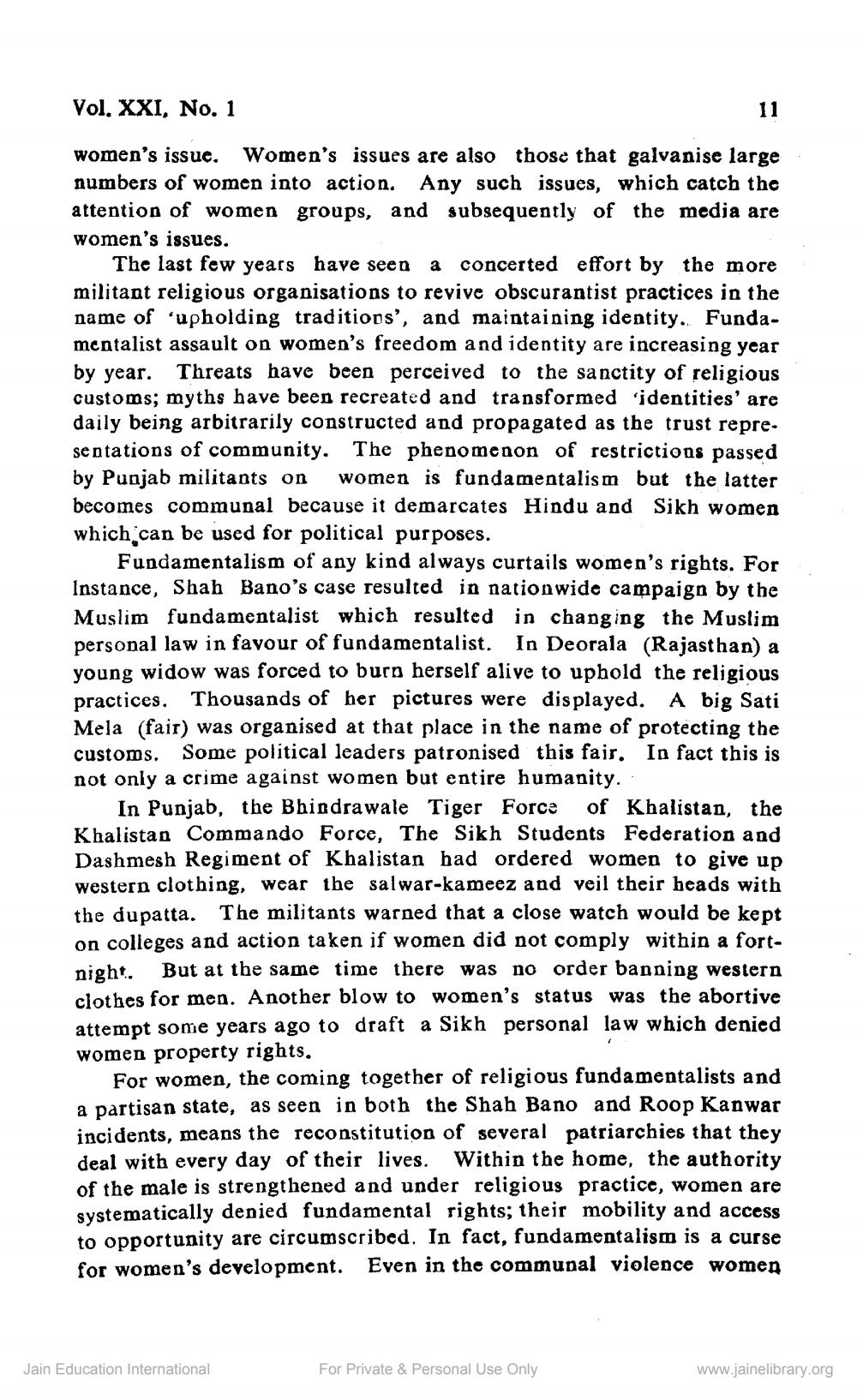________________
Vol. XXI, No. 1
11
women's issue. Women's issues are also those that galvanise large numbers of women into action. Any such issues, which catch the attention of women groups, and subsequently of the media are women's issues.
The last few years have seen a concerted effort by the more militant religious organisations to revive obscurantist practices in the name of upholding traditions', and maintaining identity. Funda. mentalist assault on women's freedom and identity are increasing year by year. Threats have been perceived to the sanctity of religious customs; myths have been recreated and transformed identities' are daily being arbitrarily constructed and propagated as the trust repre. sentations of community. The phenomenon of restrictions passed by Punjab militants on women is fundamentalism but the latter becomes communal because it demarcates Hindu and Sikh women which can be used for political purposes.
Fundamentalism of any kind always curtails women's rights. For Instance, Shah Bano's case resulted in nationwide campaign by the Muslim fundamentalist which resulted in changing the Muslim personal law in favour of fundamentalist. In Deorala (Rajasthan) a young widow was forced to burn herself alive to uphold the religious practices. Thousands of her pictures were displayed. A big Sati Mela (fair) was organised at that place in the name of protecting the customs. Some political leaders patronised this fair. In fact this is not only a crime against women but entire humanity.
In Punjab, the Bhindrawale Tiger Force of Khalistan, the Khalistan Commando Force, The Sikh Students Federation and Dashmesh Regiment of Khalistan had ordered women to give up western clothing, wear the salwar-kameez and veil their heads with the dupatta. The militants warned that a close watch would be kept on colleges and action taken if women did not comply within a fort. night. But at the same time there was no order banning western clothes for men. Another blow to women's status was the abortive attempt some years ago to draft a Sikh personal law which denied women property rights.
For women, the coming together of religious fundamentalists and a partisan state, as seen in both the Shah Bano and Roop Kanwar incidents, means the reconstitution of several patriarchies that they deal with every day of their lives. Within the home, the authority of the male is strengthened and under religious practice, women are systematically denied fundamental rights; their mobility and access to opportunity are circumscribed. In fact, fundamentalism is a curse for women's development. Even in the communal violence women
Jain Education International
For Private & Personal Use Only
www.jainelibrary.org




